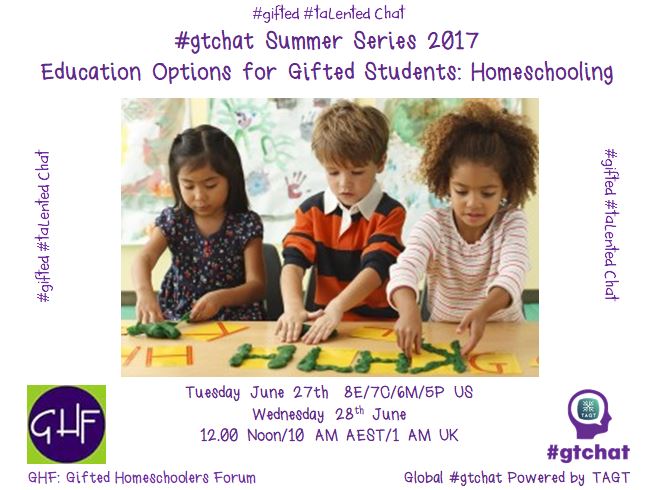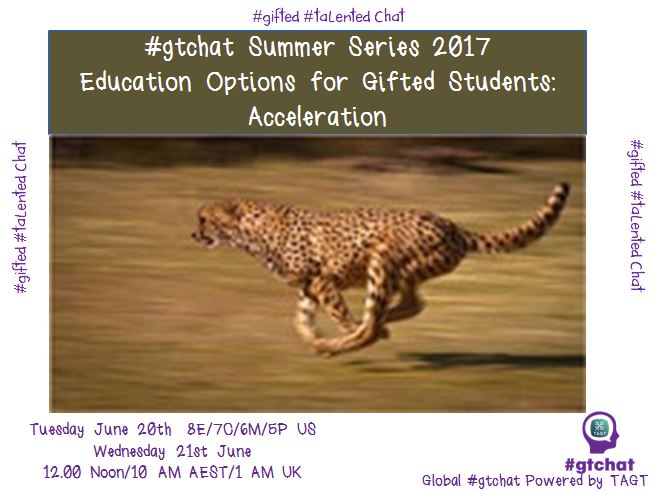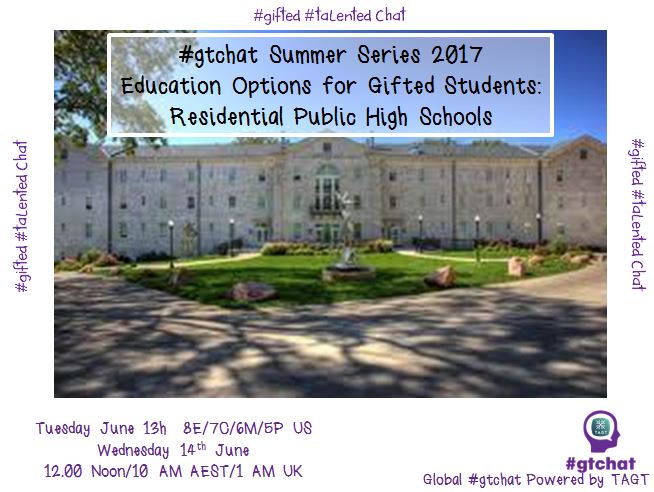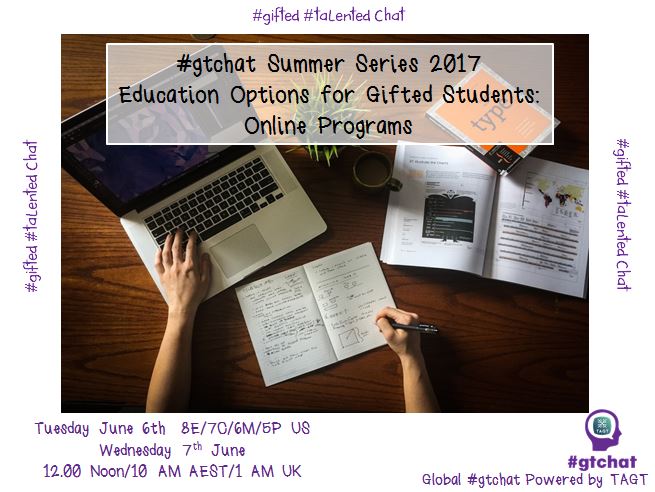
This week, we welcomed Corin Goodwin, the Executive Director of GHF – Gifted Homeschoolers Forum as our guest to chat about homeschooling gifted students.
For years, homeschooling was considered on the fringe; those who had issues with public schools regarding religion. Gifted homeschooling is based on providing the best personal education possible to meet the unique challenges of gifted students.
Homeschooling is a very personal and individual decision and today’s homeschoolers are a diverse and emergent group. Reasons for homeschooling can include a need for greater challenge than available at traditional schools. Homeschooling allows gifted students to advance through the curriculum at a pace that meets individual needs.
What should parents consider before starting to homeschool? Parents need to make a realistic assessment of the financial resources they’ll need to effectively homeschool. They need to research homeschooling and the time commitment necessary to make it work for their child and the family.
One of the biggest myths that opponents of homeschooling bring up is lack of social opportunities which simply isn’t true. Gifted homeschooled students have many avenues to socialize with intellectual peers both in real life and online.
What are the prospects for homeschoolers when applying for college or transitioning to adult life? Universities once reluctant about homeschoolers now seek out these kids; acknowledge the benefits of homeschooling. Many resources are available to document student records and accomplishments for college admissions. Good planning can make the college admissions process easier and more successful for gifted homeschoolers. A transcript of this chat may be found at Storify.
Afterthought: This chat prompted quite a few responses (from both those who attended the chat and those who did not) directed at the moderator concerning the feasibility of homeschooling. While most agreed that it would be beneficial for any gifted child to be taught at home one-on-one in a loving and supportive environment, just wanting to make it happen was not always enough to ensure a successful outcome for everyone.
One teacher related experiences of seeing parents losing their jobs because they didn’t have the energy to work and be solely responsible for their child’s education; having their child become disengaged because they didn’t have the time or skills to teach them; and even failed marriages.
Yes, some families will be fortunate to succeed without presupposing all possible outcomes, but it is a personal decision families need to make without outside judgement. Many parents said that although they were happy they decided to homeschool, they felt they would never recover financially. Concerns for other family members and personal feelings of self-worth were also expressed. Others cited the emotional toll it placed on the parent-child relationship.
These are all very real concerns. Parents who simply can’t make it work should not have to endure criticism. Just as every child is different, so is their family’s situation. It is important to make a realistic assessment of your own situation before embarking on homeschooling. In the end, you must decide what you feel is best for you, your child and your family.

Global #gtchat Powered by the Texas Association for the Gifted and Talented is a weekly chat on Twitter. Join us Tuesdays at 8E/7C/6M/5P in the U.S. and Wednesdays at Noon NZST/10 AM AEST/1 AM UK to discuss current topics in the gifted community and meet experts in the field. Transcripts of our weekly chats can be found at Storify. Our Facebook Page provides information on the chat and news & information regarding the gifted community. Also, checkout our Pinterest Page and Playlist on YouTube.
 About the author: Lisa Conrad is the Moderator of Global #gtchat Powered by TAGT and Social Media Manager of the Global #gtchat Community. She is a longtime advocate for gifted children and also blogs at Gifted Parenting Support. Lisa can be contacted at: gtchatmod@gmail.com
About the author: Lisa Conrad is the Moderator of Global #gtchat Powered by TAGT and Social Media Manager of the Global #gtchat Community. She is a longtime advocate for gifted children and also blogs at Gifted Parenting Support. Lisa can be contacted at: gtchatmod@gmail.com
Links:
Homeschooling Curriculum for the Gifted Child
Reasons to Homeschool Your Gifted Child
Creative Home Schooling: A Resource Guide for Smart Families (Amazon)
Making the Choice: When Typical School Doesn’t Fit Your Atypical Child (Amazon)
How to Work & Homeschool: Practical Advice, Tips & Strategies from Parents (Amazon)
Educating Your Gifted Child: How One Public School Teacher Embraced Homeschooling (Amazon)
Home Schooling Gifted Children
Gifted Children: Transitioning Between Public School and Homeschool
Gifted Children: The Importance of Finding Intellectual Peers and Community
Homeschooling: Where and How to Begin
Study: States Should Provide Parents with More Information about Homeschooling Options
US Public Education Policy: Missing Voices
US Public Education Policy: Missing Voices Executive Summary and Survey Date
Sprite’s Site Nest Ed: Flocks and Shoes
Gifted Online NZ Centre for Gifted Education
NZ: Te Aho O Te Kura Pounama – The Correspondence School
GHF: Living with Gifted Children
SIG Summer Institute for the Gifted
Self-Directed Learning: Documentation and Life Stories
AUS: Homeschooling Research Notes – Glenda Jackson
Photo courtesy of Gifted Homeschoolers Forum.
Graphic courtesy of Lisa Conrad.


